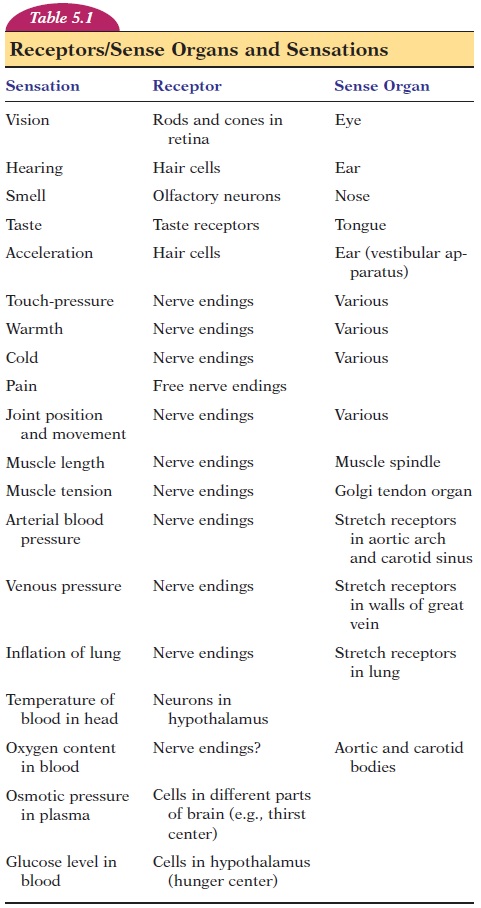Chapter: The Massage Connection ANATOMY AND PHYSIOLOGY : Nervous System
Sense Organs and Initiation of Impulses
SENSE ORGANS AND INITIATION OF IMPULSES
The neurons that convey information about the in-ternal and external environment—the sensory or afferent neurons—detect the actual changes in the environment by means of sensory receptors, which are located at that end of unipolar neurons. Sensory receptors are transducers that convert different forms of energy into action potentials. The endings of sensory nerves alone may have transducer function or they may be surrounded by other non-neural cells that produce action potentials in the neuron. In the latter case, it is known as a sense organ.
Some different forms of energy that receptors con-vert into action potentials are mechanical (touch, pres-sure), thermal (degrees of warmth and cold), electro-magnetic (light), and chemical energy (taste, smell, oxygen content in blood, and carbon dioxide content). Each receptor responds maximally and is sensitive to one type of energy. The particular form of energy to which the receptor responds is its adequate stimulus. For example, the adequate stimulus for receptors in the eye is light. Sound will have no effect on them, al-though, if pressure is applied over the eye, flashes of light may be seen. As the sensory receptors are spe-cialized to respond to one type of energy, it follows that there are many different kinds of receptors.

Although one learns in school that there are five senses, the body is able to sense many different senses. Table 5.1 lists some of the senses the body possesses. Some senses listed are complex; for example, a number of different receptors can sense differ-ent taste sensations: bitter, sweet, salt, and sour.
Related Topics